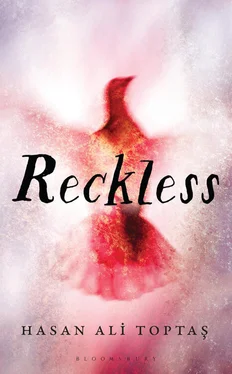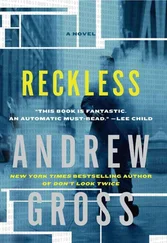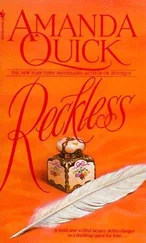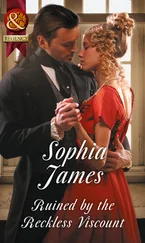‘I have to go now,’ said Kenan. ‘I hope you don’t mind me already leaving you alone for a few hours on your first day. I have to run some errands.’
‘That’s fine,’ said Ziya.
Kenan left, rushing through the vineyard and down the dirt road that led across the plain, his dark, slight form growing thinner and thinner until it melted into the sunlight like a cloud.
After he had lost sight of Kenan, there was a moment when Ziya had no idea what to do. In spite of himself, he turned back to look at the hills and their lower reaches and the green and waving forest, and the cliffs rising above them. The silence just then was deafening; now and then the sound of a sheep bell wafted in from the plain, but even this seemed no more than a gorgeous ornament hanging from the collar of this great silence. Just then a donkey brayed in the village, and as that sound shimmered through the air, it lit up — lit up only to vanish just as suddenly. And when it vanished, Ziya went inside, opened up his cases, and took out his wrinkled clothes, which he put on to hangers and hung up in the blue fabric wardrobe in the corner.
Kenan had reached the other edge of the village by then, still in a great hurry. At last he came to a stop outside the house at the end of the street. Opening the door, he quickly slipped inside. At the sound of the door, a white sheepdog dozing by the wall on the other side of the street lifted its head to fix its glowing glassy eyes on Kenan’s back, but did not bark. All it did was to open its mouth as wide as it could, to lick its chops with an enormous tongue. Then it gently lowered its head to rest on its forelegs again, and narrowed its gaze, as if preparing an ambush. For the next hour, its eyes never left the door. Even when flies landed on the sides of its mouth, it did not move. Now and again a silent torpor would contrive to close its eyes, but this never lasted long: soon enough, the dog’s eyes would jerk open again and it would reassume its old pose. It did not seem to be waiting for the door so much as the sound of Kenan’s feet. Though it could have been looking far, far away, towards some other point in time.
Just then a group of children aged between twelve and thirteen appeared at the top of the street. Boys and girls together, laughing and joking as they approached the dog. Some of these children were holding marbles. Others were holding bunches of grapes, and yet others were carrying sticks of various lengths, sticks that could be used to play skittles. When they saw the dog by the wall, the girls slowed right down; they retreated into a huddle still eyeing the dog, leaving the boys out in front. One of them was a dark-skinned boy who frowned and waved his stick as if to throw it. The dog made no sound. Without so much as moving its head, it fixed its blank gaze on the boy. In the face of this indifference, the boy picked up a rock the size of a pear and went one step closer. Shouting Shoo! Shoo! he threw the rock with all his strength. This made the dog angry. The first barks were halting but then it got up and began to chase after the children. Faced with its bared teeth and ferocious barking, the children turned on their heels and ran screaming in the direction from which they’d come. Reaching the top of the road, they vanished.
Once they were gone, the dog ambled slowly back to its station and took up its old position as calmly as if nothing had happened. Resting its head on its forelegs, it narrowed its gaze, fixing its eyes on the door. Revived by all that running, its eyes now shone more brightly than before. So brightly, in fact, that they were as good as mirrors, reflecting back the door’s every detail: the whorls in the wood, the mildew on the clay, the holes in the moulding. When Kenan came outside again, he raced down the street without even noticing the dog was there.
Passing through the village meydan , he was noticed by one of the men sitting outside the Coffeehouse of Mirrors.
This man, whose name was Kâzım the Bellows Man, jumped to his feet. Stepping out from the shade of the trees, he cupped his hands around his mouth and with great excitement cried, ‘What’s the news? Has your friend arrived?’
‘He’s arrived,’ Kenan replied.
‘That’s good, then. All the best!’
Sliding back into his chair, and lowering his cap, bringing its visor right over his eyebrows, he watched Kenan walk on. In a voice only he could hear, he mumbled, ‘I hope my business goes just as fast.’
And though he was already nine or ten paces away, Kenan looked back over his shoulder, as he had heard these words. Then he sped up again. Huffing and puffing, he left the village, racing towards the sheep pens, turning off the dirt road to stride up the slope, and from there, wet with sweat, through the vineyards, until at last he reached the barn.
He found Ziya sitting on the wooden bench outside the house, smoking a cigarette. He looked calm and at peace, as if he had just escaped from beneath a heavy burden.
‘Have you finished your business?’ he asked, when he saw Kenan approaching.
‘I have,’ Kenan replied.
Sitting down, he, too, lit a cigarette; puckering his lips, he sent little puffs of smoke sailing into the greenery of the forest opposite.
When he had emptied his mouth of smoke, he said, ‘If you like, I can take you into the village today. What would you say to that?’
‘Let’s do that later on,’ Ziya replied. ‘Why don’t we take a walk in the forest now, if you have the time.’
‘Shame on you,’ said Kenan. ‘Of course I have time!’
And so they stood up and set out through the vineyard, wending their way amid the furrows of earth, and walking down the hill, leaving behind the poplars and the sheep pens on the right to cross the dirt road, and walk on slowly, side by side, towards the forest. Just ahead, beyond the scrub, they heard the sudden echo of a clacking grouse. Ziya stopped in his tracks when he heard that, as fast as if another step might send him crashing into that clacking, and as if, the moment he crashed into it, he might die. Soundlessly, eyes shut, he stood there waiting in the grass. Kenan had stopped, too. Mystified, he turned his head, gazing in awe at his friend. Ziya opened his eyes and together they moved on. Pink and purple and yellow thorns attacked their ankles as they strode through knee-high grass, over big stones and small stones, across little fields thick with juniper bushes and fragrant with thyme, until at last they reached the oak trees. They’d been walking for forty-five or fifty minutes by then, and so, to catch their breath, they found a patch of shade to rest in; by now, they could no longer see the dirt road below. They couldn’t see the sheep pens on the side of the road, either. All they could see were a few rooftops in the village and, here and there, the uppermost branches of a poplar, pulsing sunlight. And even these seemed to sink into the depths beyond the juniper bushes, as indistinct as distant memories.
‘Honestly,’ said Ziya, as he took out a cigarette. ‘It’s everything you said it was, when we were in the army. It’s truly enchanted. Even the sky seems closer. Close enough to touch!’
Kenan raised his face to the sky. For a moment he stared into its depths, smiling faintly.
‘Do you know what?’ he said, lighting a cigarette and inhaling deeply. ‘I noticed right away, when we met last night, but the truth is, I couldn’t find the courage to ask you, not in the state you were in. And all morning, I’ve been wondering if I should ask or not.’
‘Are you worried about the scars on my face?’
‘Yes. How did you get them?’
Ziya swallowed hard, looking up to gaze over the gently swaying juniper bushes, and far, far into the distance.
‘You’re right,’ he said, still looking. ‘If I were you, I’d be wondering, too.’
Читать дальше












